Tommy Ahlers wants universities to create large companies. Ambitious? Yes! Realistic? Maybe

In ten years’ time, the Danish universities should have created ten companies - each with a total turnover of DKK 1 billion. This is the ambition of the Danish Minister for Higher Education and Science, Tommy Ahlers. The Dean of Research at CBS, a professor, and the CEO of Copenhagen School of Entrepreneurship approve of this ambition, otherwise this precious knowledge risks being filed away out of sight.
Researchers are creators of knowledge. But it is not enough to have that knowledge published and cited in scientific journals. It must be turned into companies, according to Tommy Ahlers, the Minister for Higher Education and Science.
“My ambition as the Minister for Higher Education and Science is that in ten years’ time, we will have more new companies emerging from the Danish research environment. Companies that can grow and become an engine for growth in the Danish economy,” he writes in an opinion piece and continues:
“An ambitious, but realistic, suggestion is 10 new companies in 10 years, each with a total turnover of DKK 1 billion. This requires that we create the right environment for entrepreneurship to germinate at the universities.”

Karina Rothoff Brix is CEO of Copenhagen School of Entrepreneurship, which is supported by and located at CBS. Here, students and researchers with a commercially viable idea can get various kinds of help, and she applauds Tommy Ahlers’ ambition:
“He reaches for the sky, and that’s good. However, he is overlooking the fundamental structure of the universities. The motivation for creating businesses among researchers is at a minimum. We must change the structures of the universities if we want more researchers to become entrepreneurs,” she says.
However, if researchers wish to remain relevant to society, turning knowledge into businesses is the way ahead, argues Jan Damsgaard, Professor and Head of the Department of Digitalization at CBS.
“The universities must improve their skills in this discipline if we want to maintain our relevance in society. We can’t just be a place where research is used to further educate graduates. We also need that research to be transformed into something valuable for society in different ways,” he says.
When research generates new knowledge, I think researchers should make the most of it
Karina Rothoff Brix
The Dean of Research, Søren Hvidkjær thinks Tommy Ahlers’ focus on nurturing risk taking and thinking big for the students hits the nail on the head. And these qualities must also apply for researchers, he says.
“Research is all about breaking new ground, and that is always a risky endeavour. Society benefits tremendously when entrepreneurs and researchers think big. Ahlers’ specific target is certainly ambitious, but if we have the right mindset, results will follow.”
CBS department encourages its researchers to create companies
At Jan Damsgaard’s department, the researchers have already begun discussing both working closer together with business and industry and combining research careers with business careers.
“We are one of the best producing research environments in Europe, and this prompted a discussion of our next goal. We want to increase collaboration with the business sector and make starting up businesses easier,” says Jan Damsgaard.
He explains that during the summer, one professor from the University of Copenhagen and one from the IT University of Copenhagen were invited to give a talk about combining their work as researchers with being serial entrepreneurs.
To make time for working as entrepreneurs, it is essential for researchers to change their approach to how they generate research. Also, researchers have an ace up their sleeves if they decide to become entrepreneurs, explains Jan Damsgaard.
“Instead of continuing to have their work featured in many publications, we would like researchers to focus on quality rather than quantity, which will free up time for starting a business. And researchers have an added advantage, as starting up a business while employed at CBS is not a conflict of interests,” he says and continues:
“By contrast, employees at Novo Nordisk who start up a pharmaceuticals company, have to resign.”

Søren Hvidkjær is thrilled about the initiative at the Department of Digitalization (DIGI) and will follow it closely.
“I applaud the initiative at DIGI. This is an example of the culture of bottom-up entrepreneurial spirit at CBS. If it is successful, I could certainly imagine other CBS departments following suit,” he says.
In order to make more researchers interested in and familiar with starting up a business, Karina Rothoff Brix suggests that all researchers take a course on entrepreneurship early in their careers.
“It would make sense to offer a course in which researchers learn how to commercialize their research. It could also be compulsory for researchers to commercialize their research, or at least try,” she says.
More researchers to become entrepreneurs
Karina Rothoff Brix sees huge potential in researchers converting their ideas and knowledge into businesses, but also enormous waste.
“There’s unexploited potential here. Researchers receive funds to conduct research, but often the results end up in a drawer when it’s time to begin a new research project. And that’s a waste of public resources,” she says and continues:
“When research generates new knowledge, I think researchers should make the most of it.”
Both researchers and the business sector will benefit from working closer together
Jan Damsgaard
It is understandable that researchers cannot predict all the possible ways their research can be useful. However, Karina Rothoff Brix argues that it would be a great help if using research for commercial purposes enhanced your career.
“In the U.S. and Israel, applying your research in a commercial context considerably enhances your career. Furthermore, researchers from these countries have a tradition of teaming up with students to create businesses. You don’t see that in Denmark, where researchers are not judged on their teaching skills or their impact on society, either. And as long as that’s the case, researchers will have no incentive to start businesses,” she says.
Jan Damsgaard is also aware that this is unknown territory for Danish researchers and that results from how we have organized the universities.
“Researchers are unfamiliar with starting up businesses, as they haven’t been encouraged to do so during their careers. It’s not something that is praised. Also, we have some extremely high research requirements to fulfil, so often researchers don’t have the time to engage in such projects,” he says.

He argues that it is crucial for researchers and the business sector to become involved if we intend to find solutions to the challenges of tomorrow.
“Both researchers and the business sector will benefit from working closer together. We need knowledge-intensive businesses, and if we want to make new products and new knowledge, and services revolving around new knowledge, we must work together,” he says.
Maersk and Grundfos cannot stand alone
Tommy Ahlers points towards Israel as a source of inspiration, as here researchers wishing to start up in business are often supported with venture capital.
The Technical University of Denmark and the IT University of Copenhagen are adopting a similar approach, and Jan Damsgaard hopes that CBS will consider an opportunity like this.
“If CBS researchers could get venture capital for their businesses, I’m sure we could have started up platform companies such as Airbnb five to ten years ago. We know the technology, but need the business models,” he says.
According to Søren Hvidkjær, CBS does not have a model for injecting capital into companies started by researchers, but he says:
“I will look into how DTU handles this.”
However, receiving venture capital from the universities is not enough if researchers are to meet Tommy Ahlers’ goal, argues Karina Rothoff Brix.
“In Denmark, we are good at making start-ups, but often end up pulling the plug on them, as gaining a foothold is very resource intensive. Even a business of 50 employees can find taxation, value added tax, and parental leave challenging. As it looks right now, a lot of small to medium-sized companies are spending all their profit on running their businesses, not growth,” she says and continues:
“Yes, meeting Tommy Ahlers’ ambition is realistic, but then we need a more lenient set of rules for small companies.”
We must nurture people who have entrepreneurial flair
Jan Damsgaard
And now more than ever, we need new businesses, according to Jan Damsgaard.
“Maersk and Grundfos will not be the ones to carry us forwards alone. We need to create new businesses – not because I lack confidence or faith in the well-established companies’ ability to do well, but realistically, we need new businesses to blaze new trails,” he says.
Jan Damsgaard hopes that what the Department of Digitalization is doing will pave the way for a new kind of research career:
“I really hope that whenever an idea or opportunity arises, the researchers involved won’t think ‘Oh, I can’t do that because I’m employed at CBS’ and that instead they will think ‘Yes, I can do this because I’m employed at CBS’. We must nurture people who have entrepreneurial flair,” he says.



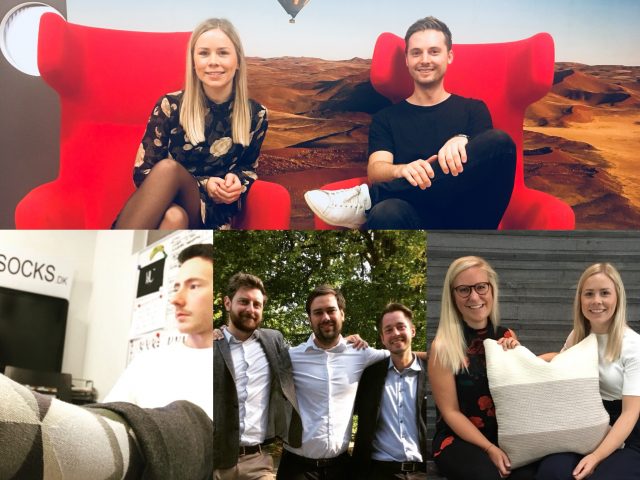
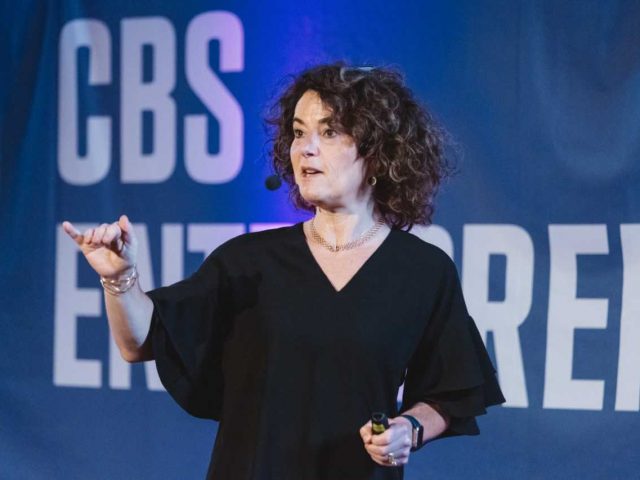

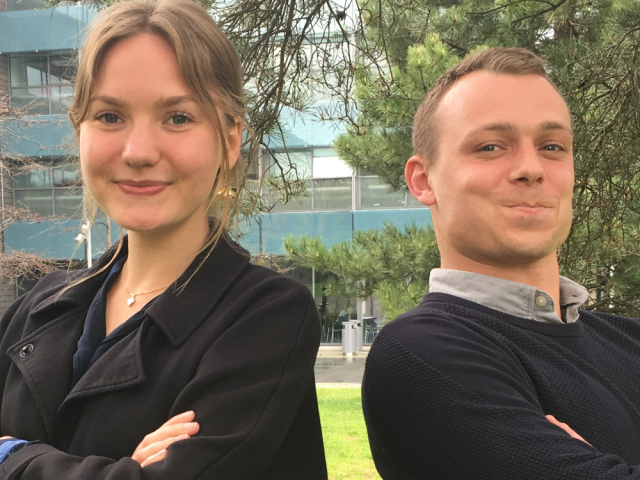
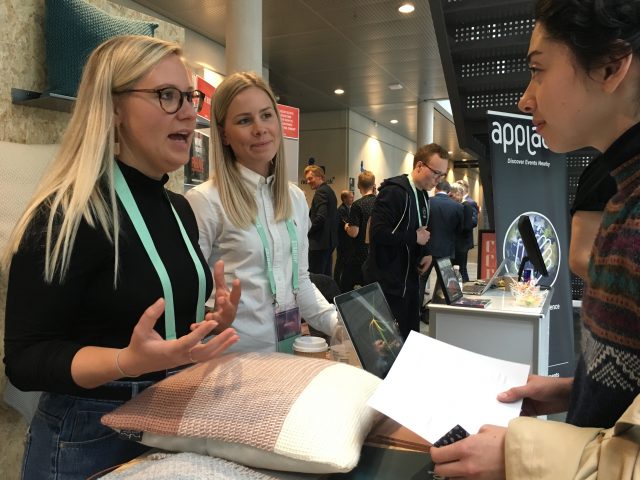

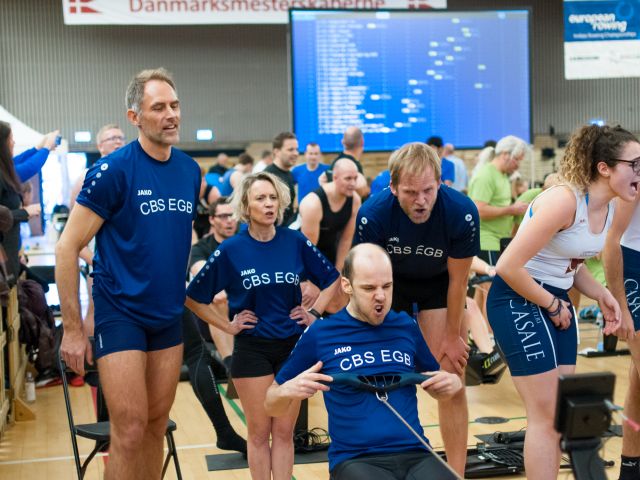




























































































































Comments